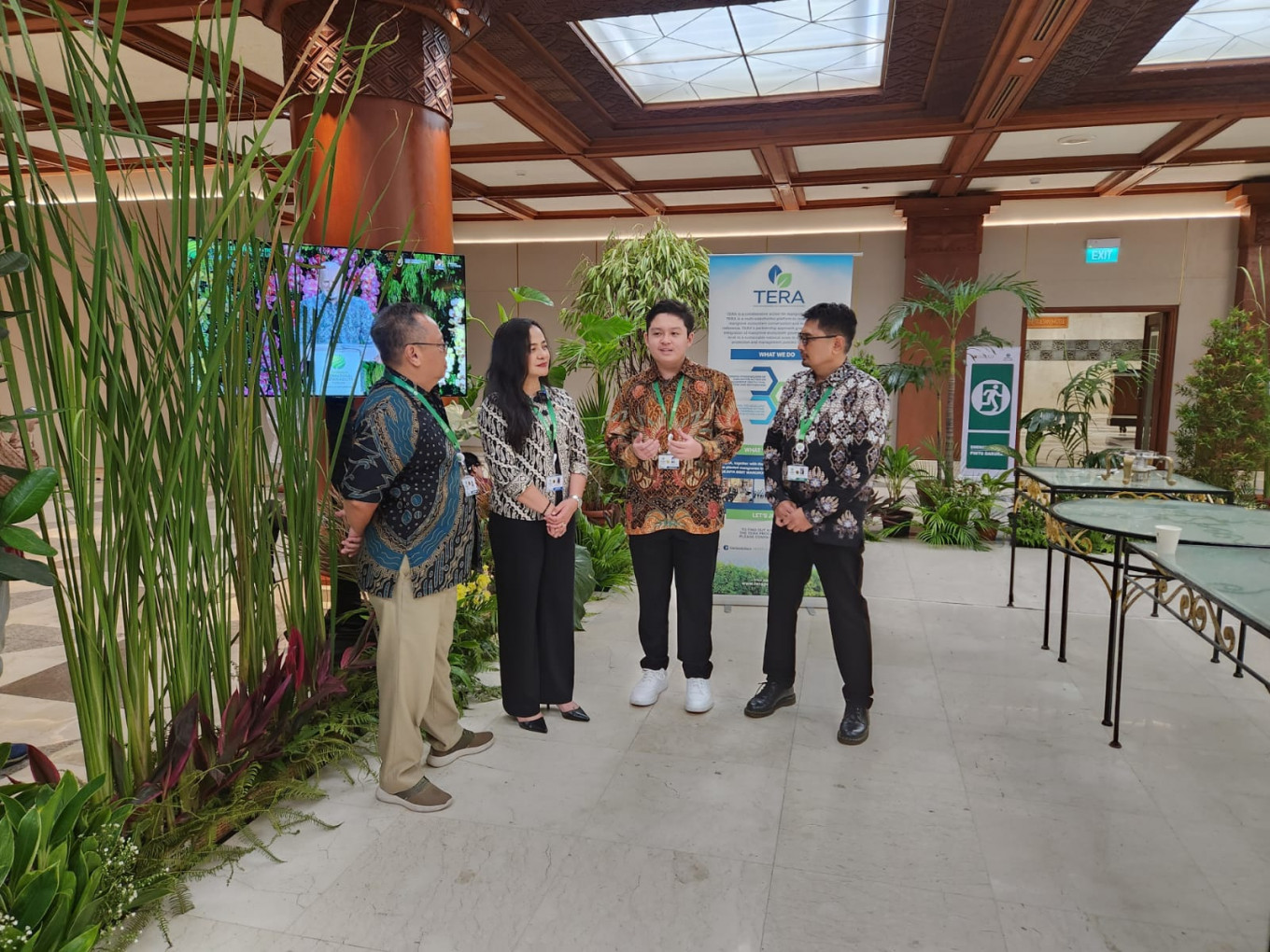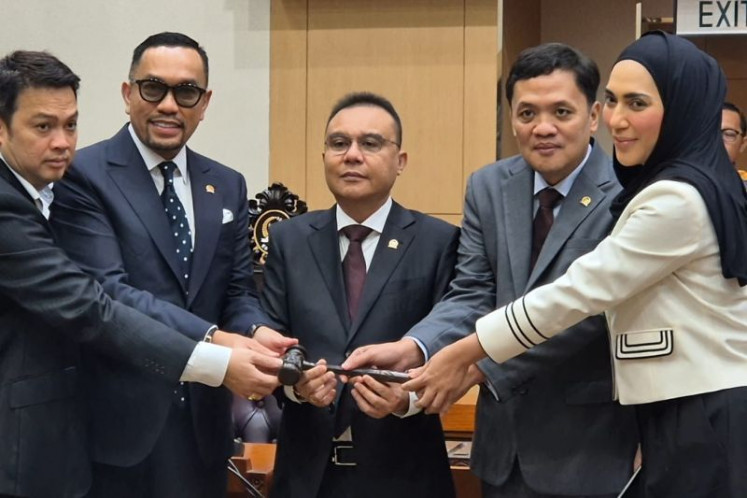Popular Reads
Top Results
Can't find what you're looking for?
View all search resultsPopular Reads
Top Results
Can't find what you're looking for?
View all search resultsKadin holds talk show on mangrove conservation and restoration
Having vast areas of mangrove and peatland, Indonesia is being recognized a hotspot for global biodiversity and has significant potential to lead climate change action.
Change text size
Gift Premium Articles
to Anyone
 Expert on Indonesian peatland and mangroves Budi Wardana (left), Indonesian Chambers of Commerce and Industry (Kadin) deputy head of the permanent committee for planning and evaluation of watersheds, protected forests and mangroves Chintya Dian Astuti (second left), Earth Pledge founder Christopher (second right) and PT Arunika Bumi Lestari director Erdonis Erdwan converse on the sidelines of a talks show in Jakarta on Friday, Sept. 6, 2026. The talk show on conserving and restoring mangrove in Indonesia was an event of the Indonesia International Sustainability Forum 2024. (Courtesy of Kadin/-)
Expert on Indonesian peatland and mangroves Budi Wardana (left), Indonesian Chambers of Commerce and Industry (Kadin) deputy head of the permanent committee for planning and evaluation of watersheds, protected forests and mangroves Chintya Dian Astuti (second left), Earth Pledge founder Christopher (second right) and PT Arunika Bumi Lestari director Erdonis Erdwan converse on the sidelines of a talks show in Jakarta on Friday, Sept. 6, 2026. The talk show on conserving and restoring mangrove in Indonesia was an event of the Indonesia International Sustainability Forum 2024. (Courtesy of Kadin/-)
T
he Indonesian Chamber of Commerce and Industry (Kadin) held a discussion panel on Friday on efforts to conserve and restore mangrove forests in Indonesia.
It was held on the sidelines of the two-day Indonesia International Sustainability Forum (IISF), which was opened by President Joko “Jokowi” Widodo on Thursday.
For the talk show, Kadin cooperated with CarbonEthic, Earth Security, Earth Pledge and PT Arunika Bumi Lestari and launched the Take Environmental Regenerative Action (TERA), a coordinated initiative to conserve and restore mangrove ecosystems throughout Indonesia with a pilot program in Indramayu regency, West Java.
“TERA has [been engaged in] mangrove conservation and restoration activities since August, with the involvement of the younger generation, Gen Z,” said Chintya Dian Astuti, deputy head of Kadin’s permanent committee for planning and evaluation of watersheds, protected forests and mangroves in a press release.
“[The younger generation] are concerned and inspire other young people in Indonesia and abroad, such as Singapore.
“That is why we feel it necessary to conduct this education program for the younger generation, [to take action] to save the Earth [so that it] can be sustainable for our offspring.”
Read also: Kadin supports mangrove planting to mitigate climate change
In addition to Chintya, the discussion event featured CarbonEthics chief executive officer Bimo Soewadji, Earth Security senior partnership manager Heru Prama Yudha, Earth Pledge founder Christopher Ginting and Arunika Bumi Lestari director Erdonis Erdwan.
The speakers concurred with Chintya on the importance of conserving and restoring mangrove forests in Indonesia.
Budi Wardana, an expert on Indonesian peatland and mangroves, expressed support for the program and expressed his intention to take part in it.
The IISF was jointly organized by the Coordinating Economic Ministry and Kadin and had several activities other than the panel discussion, including a plenary session, thematic sessions, a leadership roundtable and Warung Nusantara Dialogue.
Chintya said the IISF showed that Indonesia was being recognized as a hotspot of global biodiversity and had significant potential to lead climate change action.
“The vast areas of mangrove and seagrass in the country function as an important carbon sink,” she said.
“This ecosystem plays an important role in mitigating climate change. By focusing on restoring and protecting the blue carbon ecosystem, Indonesia has the opportunity to protect its coastal communities while providing substantial contributions to efforts to absorb global carbon.”
The blue carbon ecosystem, Chintya said, could absorb carbon up to 10 times more than forests on land.
Indonesia had some 3.3 million hectares of mangrove forests which stored some 3.1 billion tonnes of carbon, she added. (nvn)










